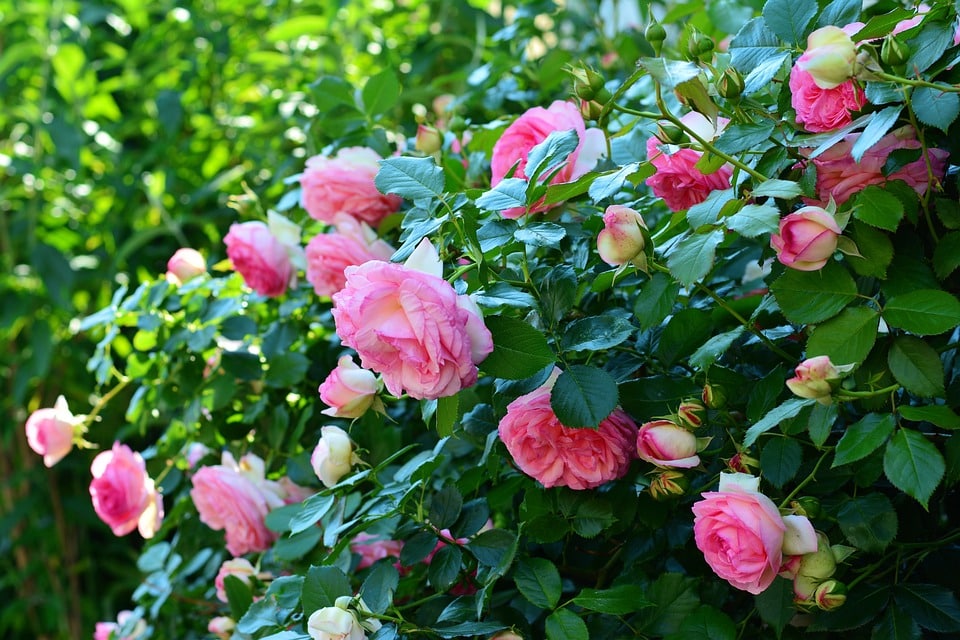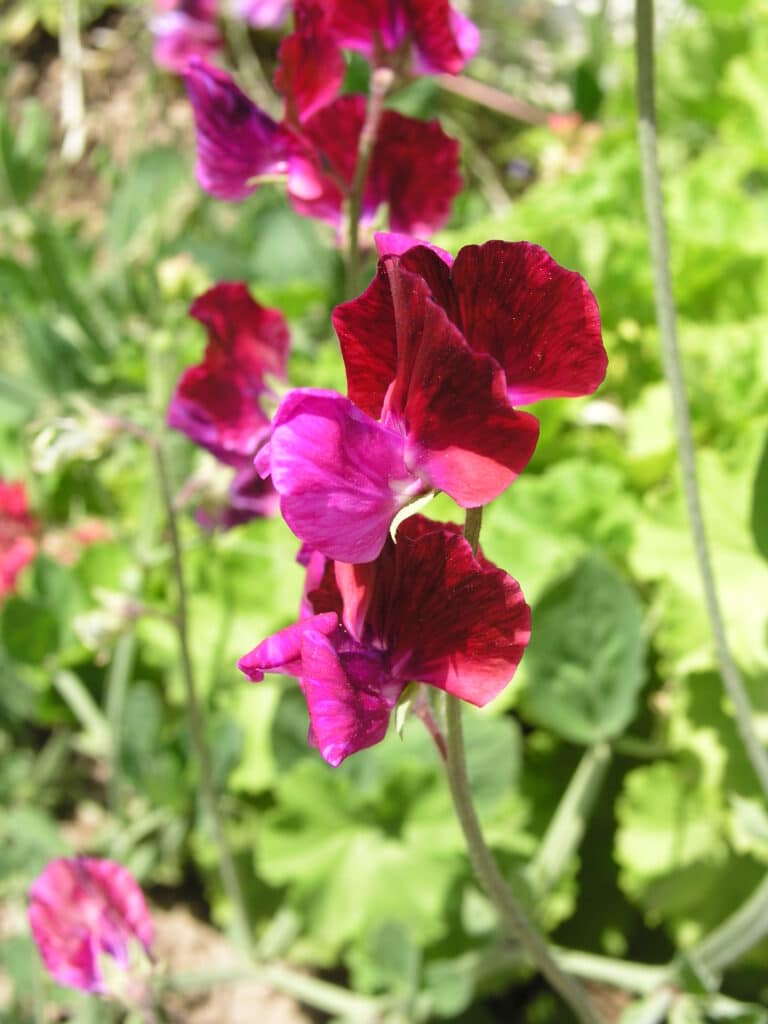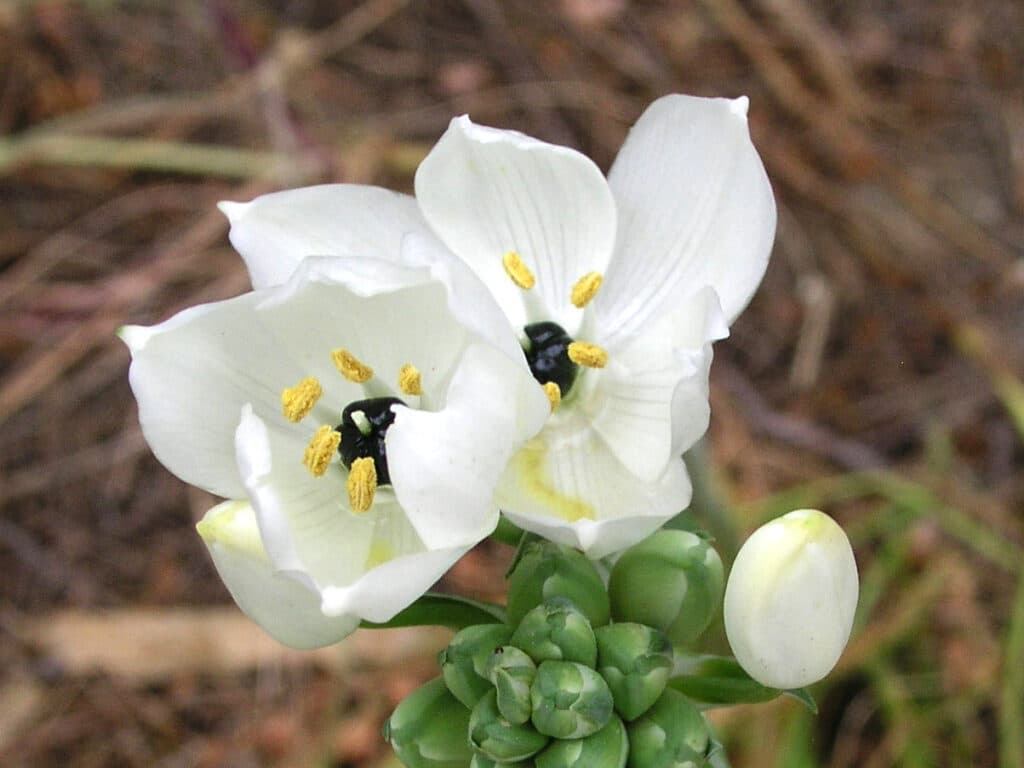May already and after the cold wet winter it is a pleasure to feel the warmth of the sun again. The plants are enjoying it all too and roses are beginning to bloom again in village gardens.
As they flourish, Banksia roses are beginning to fade away – how I look forward to them each year, but soon the damascena roses will delight me with their heavenly perfumes.
The short-lived wisteria flowers quickly wilt as the weather heats up, which is another plant that I always look forward to and will be followed by many other climbers later on, too many to mention here.
As some of the early strelitzia flowers die, the leaves begin to dry and curl into interesting shapes, much loved by flower arrangers.
There is so much else to look forward to as the days lengthen and there is more time to spend in the garden. A pleasant early morning walk around the garden will allow you to check on any annuals that need attention. As the first early flowering trees fade, there are many others to take their places, whilst the citrus trees give off their heavenly perfumes, just waiting for those bees to do their work.
WHAT TO DO IN THE GARDEN THIS MONTH
Now that the weather is getting warmer, and we have had temperatures up to 30C already (now becoming a feature at this time of year), ants and other pesky insects start to appear in the garden and in your pots. You may notice little piles of fine soil around holes in the garden or patio, which shows just where the ants are nesting. They are a real nuisance when they get into flowerpots. A trick I learned to keep insects out of potted plants is to spray the pots with WD 40 and to cover the drainage holes with a piece of old nylon stocking or fine net before you fill the pot with compost.
Pot plants, which should have had the soil refreshed by now or even re-potted, benefit from regular feeding. Remember that even decent potting composts have only a limited amount of nutriments in them – six weeks at most – so if plants are going to be left in pots all summer long, then they will need something extra in the form of a slow release fertiliser. Most plant foods have feeding recommendations on them and potted plants can easily be fed with Phostrogen, such an easy feed to apply, mixed into the water in the can.
Later on, you may find these ants invading your kitchen cupboards and this I don’t allow! So, here’s my recipe for dealing with them indoors. Mix together 1 tablespoon peanut butter, 2 tablespoons sugar, 1/2 teaspoon BORAX (from a pharmacy) with 1 teaspoon water. Spread spoonfuls on pieces of card and place them where the ants are invading. You may be alarmed by the number of ants that are attracted to this mix, but their greed means their demise, as they scamper off with pieces back to the nest.
Other pests are greenflies and blackflies that may appear on rose stems and new citrus leaves and these are reasonably simple to cope with. I think I have mentioned before that greenfly are born pregnant – so before long there will be millions of them amongst your plants, if you don’t deal with them now. A spray of water with a drop of washing up liquid added to it may kill them off before they disfigure the leaves, but a newer recipe suggests adding some salt to that solution. As the season progresses then along will come the mealy bugs and scale insects to join the green flies, all of which need to be dealt with. Some still use Neem Azal-T/S, which is a biological treatment, so reasonably safe, but do protect your eyes and skin whilst using it and wash your hands afterwards. If you are spraying, it goes without saying to choose a non-windy day, remembering to spray under the leaves and stems as well. My husband is still of a mind that morning patrols and squashing any mealy bugs will sort them out!
Amongst other bugs that may infest your garden this month are aphids called Cinara cupressivora, which infest hedges or topiaries shaped from Cupressus trees. In fact, they can cause such die-back that you could lose the tree or hedge altogether. You could try Neem Azal for this as well.
There is just one more major task to do this month before the summer heat and that is to feed your fruit and nut trees for the last time until the autumn. Use 20.10.10 fertiliser – three mugsful for mature trees and one mugful for young trees. Spread this on the feeding roots which are halfway between the trunk of the tree and the leaf canopy and if it doesn’t rain then water it in.
Keep checking for iron or zinc deficiencies on the new leaves as they appear. If the leaves are short of iron they might be a very light green colour, sometimes even yellow and the veins show up very clearly. Two dessertspoons of iron chelate mixed in ten litres of water applied to the watering area around the base should do the trick. An old Cypriot remedy was to put some iron nails in the soil around the base area, which was all a bit ‘hit and miss’! Zinc shortage is another problem sometimes affecting citrus leaves and shows itself as a mottling on the leaves. For this problem, buy some zinc chelate from your garden chemical store and mix a level dessert spoon of the chelate in five litres of water, which is better sprayed onto the tree until the mixture runs off the leaves.
After all the early heat, there’s probably a lot of dead heading to do. If your osteospermums (Cape Marigolds) and pansies and other early flowerers are looking rather bedraggled, cut them back and feed with a good all-round fertiliser like Phostrogen, which is easily watered on. They should recover and bloom again. Don’t let your plants go to seed or they will die off quickly, so keep picking any sweet peas until the plants are tired and then save the seeds in an old envelope for next year, as plastic bags make them sweat and go mouldy. Pruning the dead heads of roses down to an outward facing stem each time they die off and feeding them every three or four weeks with a good rose feed during the season, will ensure lots more flowers. Dig those weeds out before they can make seeds as well, or they will spread everywhere!
In order to sit back and enjoy the garden later on there are still some jobs to be done. Stake up any tall plants in case they are blown over in the summer breezes. Winds from now on will be warm, which can have a drying effect on plants, so getting out there with a watering can in the early morning or evening will help revive them, once the wind has died down.
Plant of the Month Ornithogalum arabicum
Ornithogalum arabicum known as the ‘star of Bethlehem flower’ is classed as a perennial plant (one which comes up every year), although it is in fact a bulb and a member of the Asparagaceae, formerly Hyacinth family. The name translates into Greek as ‘birds’ milk flower’.
The strap shaped leaves of this little spring beauty start to push up through the soil in December or early January. Just before the long-stemmed clusters of flowers burst open in March or April the leaves die away, leaving a rather untidy mess underneath the plant. However, the pretty six-petalled white flowers are well worth the wait.
There are many species of ornithogalum, but Ornithogalum arabicum is by far the most attractive in my view. Lots of the others are regarded as weeds and can become very invasive.
Ornithogalum do not like to be moved once planted and may indeed just disappear altogether. So do ensure that you plant them where they are to remain long term. The bulbs are poisonous, so take care when handling them and wash your hands well afterwards. They are fully hardy and can withstand some cold.
Like the native asphodels, which the foliage sometimes resembles, ornithogalum need a long dry dormant season, which our climate affords although they even do well planted in pots. Just pop the pots into a shady but dry spot after flowering and leave them until the tiny leaf shoots start to appear again towards the end of the year. Bring them out again and let the rain water them naturally.
The white star-shaped flowers have little black eyes which are the ovaries, and the perfume which the flowers give off during the spring is indeed heavenly.









Click here to change your cookie preferences